Consult the Holy Spirit. Some books can be educational, while others are clever stories designed to deceive.
Apocrypha means “things that are hidden, secret.” In relation to the Bible, hidden books that were excluded and considered “hidden” from the Canon. There are two collections of hidden books: the deuterocanonical Apocrypha and the pseudepigrapha Apocrypha.
Deuterocanonical Apocrypha
Deuterocanonical literally means “the secondary canon.” So in addition to the first canon of scripture (consisting of 66 books), there were 15 other books that used to come packed between the Old and New Testament of every Bible up until 1881.
The Geneva, King James Version 1611, Coverdale, Tyndale and other english bible translations all included the following books. By the way, all these books are Old Testament books. You can browse them at KingJamesBibleOnline.org:
- 1 Esdras
- 2 Esdras
- Tobit
- Judith
- Additions to Esther
- Wisdom of Solomon
- Ecclesiasticus
- Baruch
- Letter of Jeremiah
- Prayer of Azariah
- Susanna
- Bel and the Dragon
- Prayer of Manasseh
- 1 Maccabees
- 2 Maccabees
Pseudepigrapha Apocrypha
These are other texts which never made it into any of the first or second canon. These are writings, mostly Hebrew, ascribed to various biblical patriarchs and prophets but were composed within approximately 200 years before and after the birth of Jesus Christ (but some could be older than that).
The following list is not exhaustive. These books are considered to be both Old Testament and not New Testament. You can browse the content of these texts at www.Sacred-Texts.com (I don’t indorse anything on this website).
- The First Book of Adam and Eve
- The Second Book of Adam and Eve
- The Book of Enoch
- The Psalms of Solomon
- The Odes of Solomon
- The Letter of Aristeas
- Third Book of Maccabees
- Fourth Book of Maccabees
- The Story of Ahikar
- Testament of Reuben
- Testament of Simeon
- Testament of Levi
- The Testament of Judah
- The Testament of Issachar
- The Testament of Zebulun
- The Testament of Dan
- The Testament of Naphtali
- The Testament of Gad
- The Testament of Asher
- The Testament of Joseph
- The Testament of Benjamin
- The Gospel of Thomas
- The Book of Jubilees
- The Secret Gospel of Mark
- The Acts of Paul
- The Book of Jasher
- The Gospel of Mary
How the second canon got excluded
As I said before, the deuterocanonical books were always coupled with the Old Testament, and when the New Testament came around, they remained. It wasn’t until 1881 when textual critics Westcott and Hort had them removed from all Protestant bibles.

Brook Foss Westcott (1825-1903) and Fenton John Anthony Hort (1828-1892) were two unbelieving Anglican professors at Cambridge University. Brief research on these two men will reveal the fact that they were not converted children of God; and therefore had no business messing around with anything related to God’s Holy Word, let alone, coming out with their own version of the New Testament.
Both men believed that Heaven existed only in the mind of man. They believed that Hell was not a place of punishment for the guilty. They practiced necromancy, and didn’t believe the Bible was the infallible, inspired word of God. And this is all exposed in their own writings.
The Catholics didn’t agree with Westcott and Hort’s proposed exclusion of the Apocrypha books which is why most Catholic bibles still have parts of the second canon in them.
Many Protestant Christians avoid the Apocrypha because they think it’s a Catholic thing when it was around well before Roman Catholicism—some 400 years even before Christ (according to an expert authority on rare antique bibles). And on top of all that, these were the writings of God fearing Hebrews and their experiences, not European Roman Catholics.
While these writings were considered second to the main canon of scripture, I believe that if they were alongside the first canon for so long, that they could be of some edification today.
However, God is sovereign and if these books were so important that without them we wouldn’t have a strong faith, I believe the majority of bibles today would still include them. Perhaps the second canon was useful for the early saints, but now, maybe not so much today. Who knows, God is sovereign though.
The problem with the Apocrypha
And then there’s the second collection, the pseudepigrapha Apocrypha. This is where things get a bit flaky. Some of these books totally contradict scripture. For instance, in The Book of Mary, Jesus was married to Mary Magdalene. This is where the deceptive Hollywood movie The Da Vinci Code gets its storyline. There’s also The Secret Gospel of Mark which reveals a homosexual Jesus. Jesus wasn’t married, nor was he a homesexual. The Canon is clear about this.

Then there’s The Acts of Paul where Paul preaches celibacy (or chastity) as a requirement for salvation contradicting his teachings in 1 Corinthians 7:5-7. This book also includes the travels of Paul and a virgin named Thecla. Their adventures together promote feminism and female teachers which is contrary to Scripture.
As you can see, some of these books are heretical and were rejected because they didn’t align with the Canon.
For a descriptive look at some of these books, visit part one and part two of the History Channel’s series Banned from the Bible. Each video is about an 1.5 hours, but it does cover a wide range of stories from the second collection of Apocrypha.
Extra biblical texts
On the other hand, out of this same collection, the standard Bible today references and/or quotes from The Book of Jasher (see Joshua 10:13 and 2 Samuel 1:18) and The book of Enoch (see Jude 1:14). And there may be more references and quotes I’m not aware of.
In the Book of Enoch (15:8-12), it speaks of the origin of demons being the disembodied spirits of the nephilim—the offspring of fallen angels with human women mentioned in Genesis chapter 6. And in Jasher (9:38), you get a glimpse into how enormous the Tower of Babel might have become before it was discontinued—it mentions that it took 3 days just to walk around the base of the tower.
Is this extra biblical, background information true? Only the Spirit of God can say. Is this information essential for salvation? No. But it does bring clarity to some things we read in scripture.
So what do we do with these books?
C.S. Lewis, Watchmen Nee, Joel Olsteen and T.D. Jakes are just a few popular authors today. Some of their books are edifying and some of these books are written with the intent to deceive and bring people into darkness.
Therefore you have to be careful and rely on the Holy Spirit to guide you in your choice of reading. Given the history of the second canon, I believe it’s more authentic and therefore useful. However, the pseudepigrapha, I would be extra cautious with even though some of these books are referenced in the Canon. Overall, I would treat any Apocrypha book like any Christian book today.
If you ever owned a study bible, you know it comes packed with historical facts, maps, illustrations and commentary. No one has a problem with these additions to scripture, and this is how you should consider the second canon. Positioned right between the Old and New Testament, these would’ve been excellent sources of edification, encouragement and historical background for the early saints.
While I haven’t read most of the second canon, I did briefly peek at the Wisdom of Solomon and the second chapter really gave me some insight into how the wicked think about the righteous. It was very informative and confirmed some experiences I had with the wicked early in my walk in Christ.
However, if any Apocrypha book doesn’t align with the Canon, you shouldn’t read it. But don’t be so quick to discard it out of misinterpretation. I’ve heard people quote passages of Enoch out of context and say that since it seems to say something that contradicts the Bible, it’s obvious false scripture. These same people misinterpret the standard 66, and twist them to validate the practice of sin. So allow God to help you understand any text instead of your flesh, and if it’s in fact in error, discard it.
Are the Apocrypha books inspired by God?
Any writing under the influence of the Holy Spirit becomes an inspired text. Articles and books you read today, if the authors were led by the Holy Spirit to write them, these could be considered “inspired.”
The 66 have all the information we need for salvation.
But that’s not what people really mean when they ask that question regarding the Apocrypha. What they’re really asking is, “Did God leave something out of the 66 that is within the other 40 plus books that pertain to salvation?” The answer to that question is: No. God is sovereign, he’s in control. The 66 have all the information we need for salvation.
Bible versions
This brings up the topic of bible versions. In my article about the King James Only movement, I wrote about how God led me to put down the New International Version (NIV) because it omitted vital scriptures. The same approach you should have toward the Apocrypha, you need to have for the multitude of bible versions out today—consult the Holy Spirit as you chose.
Personally, the Authorized King James Version has been my foundational bible, but because of the older language, I do parallel my studies with the New Living Translation or any contemporary english version I happen to have access to.
If it’s not a bible version you’re seeking, it’s the type of bible you need to take into consideration. Personally, I’ve abandoned study bibles because they’re heavy, huge, and include commentary that attempt to tell me what passages mean instead of allowing the Holy Spirit to reveal things from different angles.
If you’ve studied for some time, you know the Holy Spirit can reveal multiple revelations on one single verse (one you’ve read multiple times before and didn’t see) but a commentary is limited to one explanation due to printed space.
You must have the Holy Spirit to understand the Bible
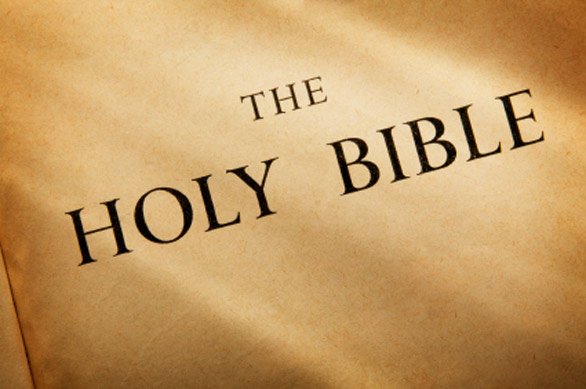
Paraphrased bibles like The Message are even worse, attempting to change the word of God to appeal to people who have not accepted Christ. The word of God is only for people who are actively seeking the Savior. There’s no need to alter the Holy Scriptures because it becomes all the more easy to understand once the Spirit of God is in operation.
Have you ever seen how atheists can read the Bible and find all kinds of supposed contradictions, and laugh at the mighty works of God as fictional stories? That’s because they’re void of the Spirit of God, they aren’t seeking the truth and therefore the Bible seems like a fairy tale to them.
The Bible is the most precious book in this world.
The Holy Spirit is what is necessary when it comes to the Apocrypha, the Canon, or any other book, blog, or article you read. And if you have the Holy Spirit, you will come to understand that the Bible is a history book detailing the beginning of time while prophesying the end. Therefore the Bible is the most precious book in this world; and the 66 books, the main canon, are the most important ones.
The Bible is the letter of God to man showing his creation how to join his eternal kingdom, and what will happen to those who reject him. Viewing the Bible as a bunch of poetic stories and moral suggestions is how unconverted sinners view the Scriptures.
Avoid Bible discussions with such people and especially men who don’t believe the Holy Spirit is our guide for today.
Therefore, anyone attempting to debate the validity of the Bible or its inerrancy will be wasting their time on this site. Your comment and email will be discarded. If you don’t believe the Bible, keep it to yourself.
Guarding against Gnosticism
With anything pertaining to new and hidden knowledge, guard against Gnosticism. Many of the books in the second group of Apocrypha are Gnostic books and those assembling the Bible knew this, which is why they were rejected from the Canon.
We live in the age of increased knowledge as Daniel 12:4 prophesied and the Internet is the gateway to knowing almost anything. This is the perfect place for Gnosticism.
Gnostic comes from the Greek word gnosis which means knowledge. Gnosticism teaches that a person can elevate him/herself to proximity with the Divine (or Jesus) through study and scholastic understanding; passing through levels of perfection as a person’s knowledge increases. In Gnosticism, knowledge is god.
Gnosticism teaches that closeness to God is limited only to the select few who could attain it intellectually through long studies. This contradicts what Jesus taught when he said those closest to God were the poor and simple, who were justified by faith alone (Matthew 5:3; Ephesians 2:8-10).
Now, most Christians aren’t thinking this way as they pursue knowledge, but this is where the lust of hidden knowledge can lead. Some Christians may be gnostic and not even know it.
It’s starts with the revelation of missing books. Then their whole faith is destroyed when they realize Jesus was married and had some kids. Or they get caught up in The Book of Enoch and they’re consumed with fallen angels and their offspring.
I know what some of you are already saying, “I would never go that far off, that’s just plain crazy.” But if not that avenue, there’s always others. Whatever Satan can do to get you away from what really matters, he will do.
I’ve known people who read more books related to the Bible than the Bible itself. And when you ask them about what their reading, their books never pertain to righteousness and holiness. But rather excessive focus on the end times, the occult, the error in the Institutional Church, Christian fantasy stories, hidden mysteries of the Bible, hard to understand passages, and all this sidebar stuff which steers away from the pursuit of Christ.
They seem to be drawn to these things because either their flesh is stronger than their spirit (for it’s natural for us to be curious about the unknown), or deep down, they really don’t want to face the horrible condition of their soul. So they’re deceived into believing they’re “right with God” through excessive Bible related studies. Some of these people are just rebellious and they really don’t want God. They remind me of the Pharisees in Jesus’ day. And this is what he said to them:
[You] search the scriptures; for in them ye think ye have eternal life: and they are they which testify of me. And ye will not come to me, that ye might have life (John 5:39-40)
Eternal life is not found in the knowledge of the scriptures but in obedience to Christ Jesus which reflects in one’s character.
We’ve all seen people who can quote scripture at the drop of a hat. They seem so knowledgeable as it pertains to the scriptures, but they practice lying, witchcraft, fornication, adultery, arrogance and so on. Knowing scriptures means nothing if you life doesn’t reflect Christ.
This is not to say that it’s a sin to study a sidebar issue as relates to your faith. No. By all means go where you need to study in order to get understanding, but stay on track and remember what it is all about—the glory of the Most High God. I believe that when we’re submitted to the Holy Spirit, we don’t have to worry about veering off down some dark path, because the Spirit will keep us on track.
It’s not that knowledge is evil, it’s just that if your pursuit of knowledge is to puff yourself up, or to fill that void in your soul, you will miss the true God. Filling that part of your soul with anything other than God is idolatry and idolaters will not inherit God’s kingdom:
Know ye not that the unrighteous shall not inherit the kingdom of God? Be not deceived: neither fornicators, nor idolaters, nor adulterers, nor effeminate, nor abusers of themselves with mankind, 10 nor thieves, nor covetous, nor drunkards, nor revilers, nor extortioners, shall inherit the kingdom of God. (1 Corinthians 6:9-10)
Conclusion
So, that’s my views on the Apocrypha and any other Bible-related texts. Be careful with them. Be led by the Spirit so that your flesh doesn’t lead you into Gnosticism or anything that pulls you away from righteousness and holiness. Focus on articles, blogs, and books that draw you away from sin, but closer to Christ.
The goal of every saint must be to conform to the image of Christ (Roman 8:29). This is the will of God for every saint. And the consistent study of the Holy Scriptures will get you there. The word of God literally washes your soul of its filth through meditation and application (1 John 1:7; Eph 5:26). Spend more time in the 66 books with the intent on being like Christ.

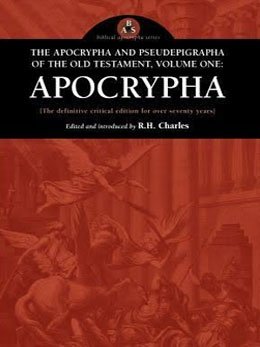
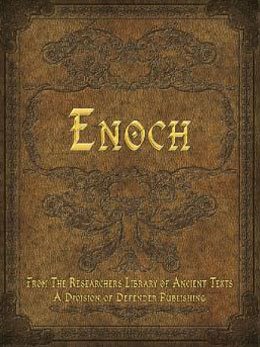
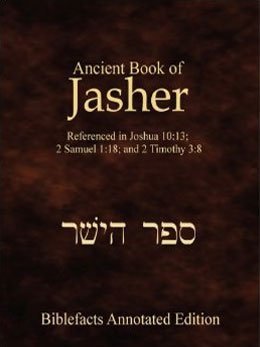
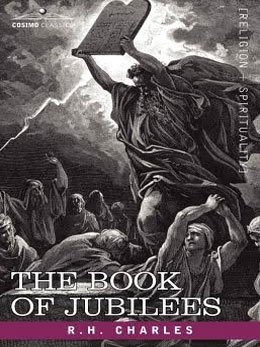
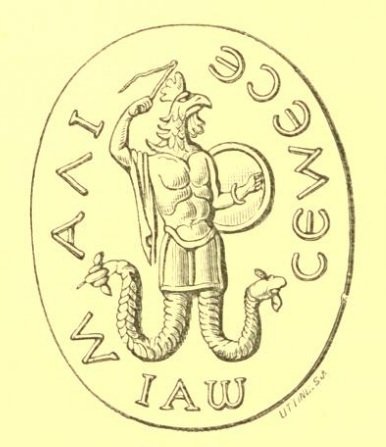
Thanks you so much for this in depth insight into what I have been struggling with about these additional books.
I just need to get closer to God more and not loose my way. Since all this confusion, i have strayed away from attending service, listening to gospel music that used to get me in my knees and struggling to read my bible.
I need to get back in the right track with God again. This is deep but thinks very much for this insight.
God bless you brother
Precious, I’m glad to hear this has helped.
HI, your so right that we get confused and lose our way and losing that way comes quickly. I too stopped attending church but I still read the word of God and listen to my gospel music, which does help me to stay focused and I have not stopped calling on the name of the Lord. My son is so caught up in the Israelites that he does not even want me to listen to gospel but I will not allow that so I decided to do what I know and believe is right. I still call Him “JESUS” He has many names and as NealReal says to which I do agree, He has not said to him not to call me (Jesus) by that name. I thank God for this website and for all the information I have read has been a blessing to me.
Thank you
NealReal
Great article Neal. It’s helpful to hear more about this. I guess I’ve had an idolatry problem when it comes to knowledge. I feel like I’ve been one who cherishes knowledge, even backing up my desire for it by saying that God is a God of knowledge, as it says in 1 Samuel.
But perhaps I have loved knowledge more than God. Moreover, it scares me when you write how some may appear to want God, but are actually rebellious, and don’t want God. I am afraid that is me. What do I do, because I shouldn’t rebel against God.
I may have not been led by the Holy Ghost, the Spirit of truth, when I am reading the scriptures. I feel like I have for too long tried to understand the Word of God by my own means, and through my own understanding. I really need the direction of the Holy Spirit. I lately have tried to read and pray without studying, so I hope the Lord will give me direction and revelation of his truth.
Again, glory to God for this article. Thanks for the advice Neal, and many thanks to the most High God.
Mike, Proverbs 3:5-6 is the remedy. Cry out to God and he will hear you. Don’t stop calling, and knocking until you get him.
3 interesting things about this subject for me
1. Jesus never quotes from the apocrypha
2. I don’t believe anyone in the new testaments quotes anything from the apocrypha
3. Jesus appears to encompass the entire Old Testament in its original form and he doesn’t include the apocryphal books. In Luke 11:50-51
“That the blood of all the prophets, which was shed from the foundation of the world, may be required of this generation; From the blood of Abel unto the blood of Zacharias, which perished between the altar and the temple: verily I say unto you, It shall be required of this generation.”
Luke 11:50-51 KJV
http://bible.com/1/luk.11.50-51.kjv
I feel that the Holy Spirit doesn’t want me to read these apochrypha But when I found these scriptures it really gave me a red flag about the apocrypha.. what do you think about this?
If you feel like the Apocrypha books shouldn’t be read, then don’t read them. It’s clear many of them aren’t from God or from his children as exposed in this article.
As I mentioned, treat them as any other book on the Christian bookshelves today—with caution. However, according to history, many of these were bundled in your average Bible just up until recently.
I wanna address the things you mentioned:
“Jesus never quotes from the Apocrypha.” With that logic, we’ll have to exclude any current book in the OT Jesus didn’t quote from. So now all the books of the OT must be quoted by Jesus in order to be valid?
“I don’t believe anyone in the new testaments quotes anything from the Apocrypha.” Jude 1:14-15 quotes a direct passage from Enoch 2:1-2, after looking at it, it lines up.
“Jesus appears to encompass the entire Old Testament in its original form and he doesn’t include the apocryphal books. In Luke 11:50-51” I’m not clear on what you’re saying here. Where is this in scripture that Jesus “encompasses the entire OT”? Please clarify.
Did you read this entire article? If you’re saying that the whole Apocrypha is evil and should be avoided, I don’t agree with that. Yeah, SOME of them are totally deceptive, but the rest, specifically those bundled in the canon, were edifying. But I believe because they weren’t the most important ones, God allowed them to be removed.